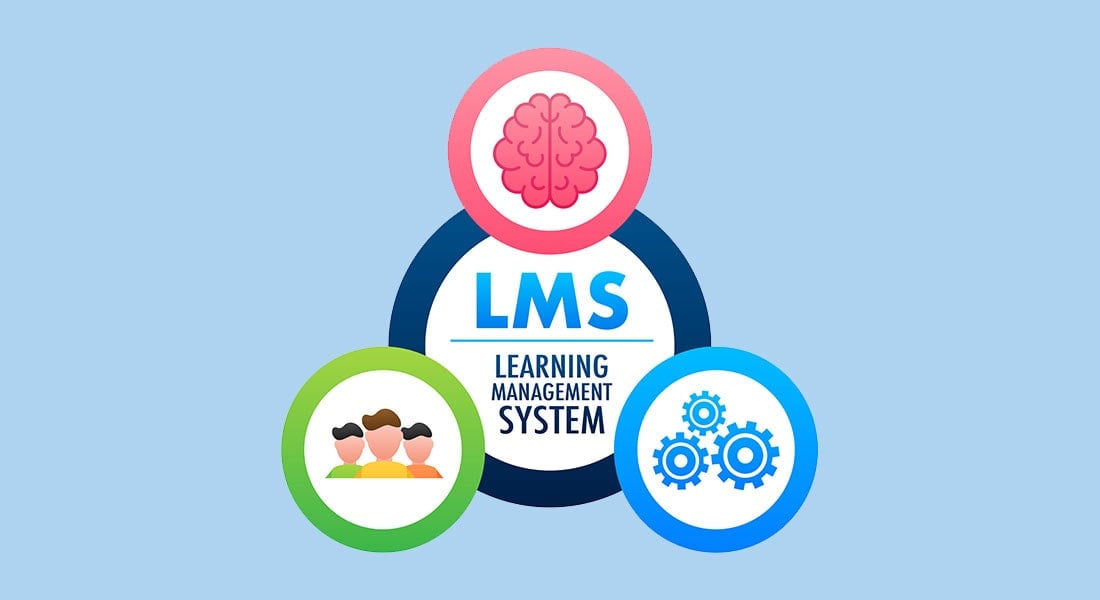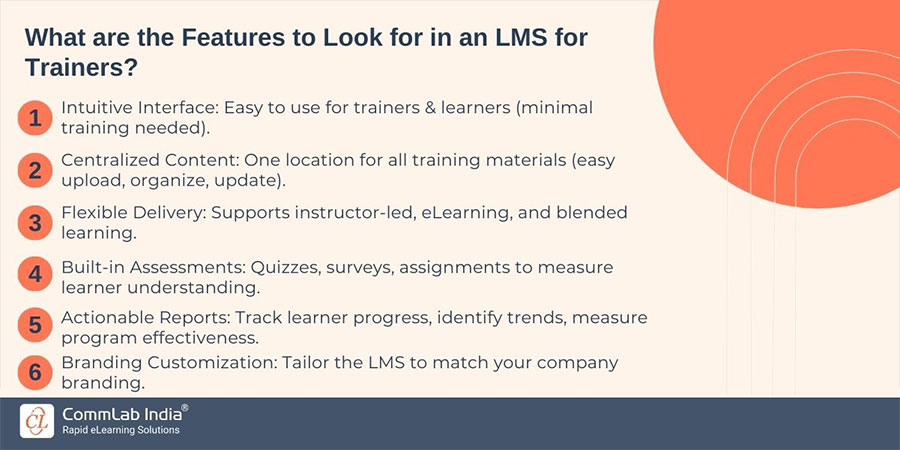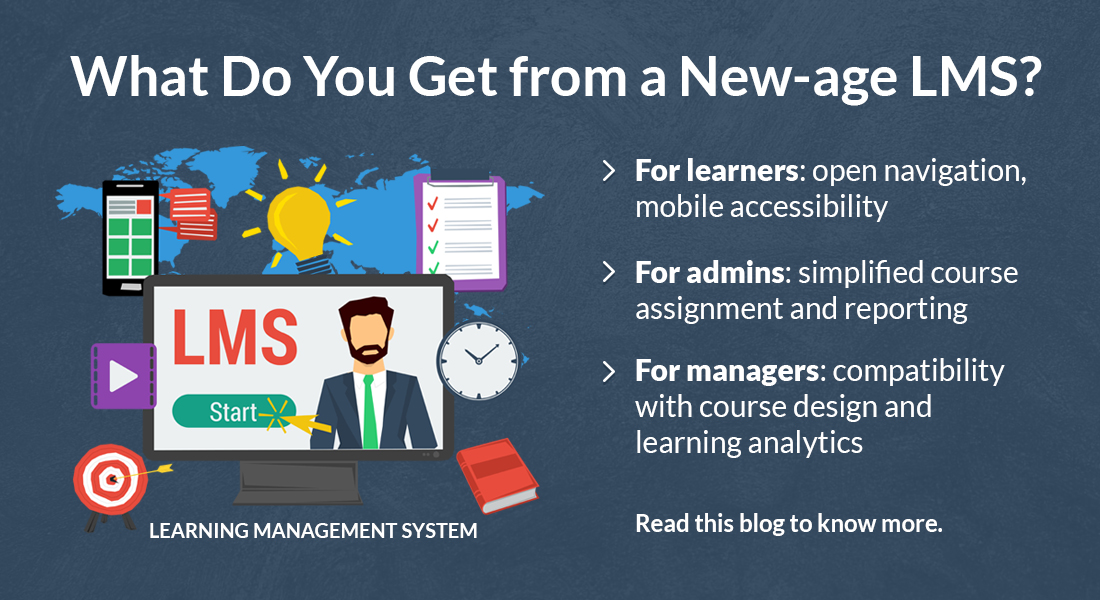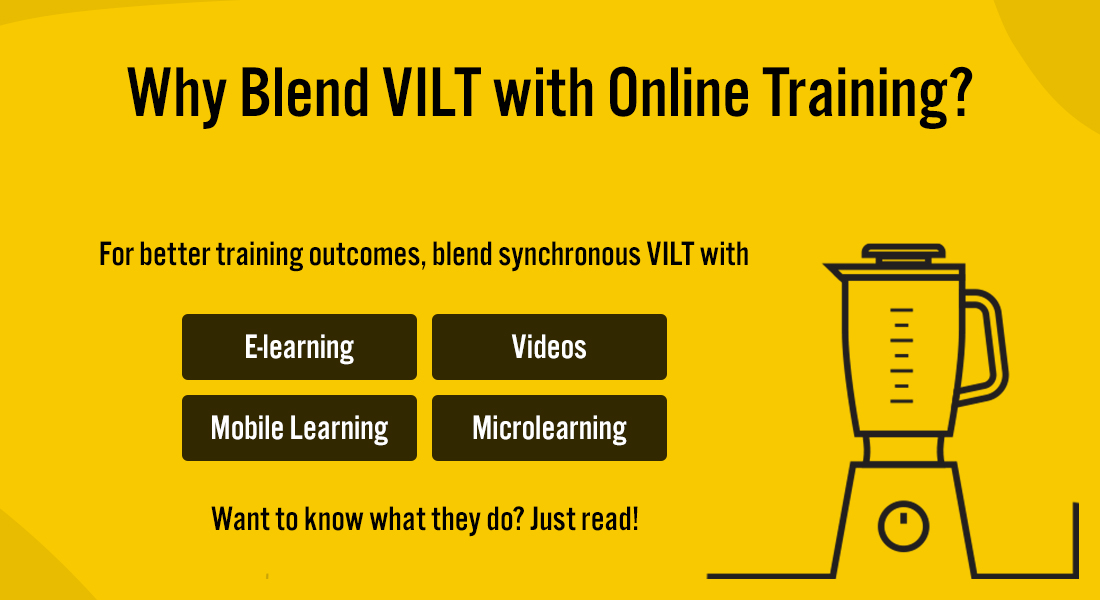How LMS Helps Corporate Trainers Streamline Learning?

The modern corporate trainer wears many hats. You're a knowledge architect, an instructional designer, a motivator, and a data-driven performance optimizer. But even the most skilled trainer can struggle to deliver impactful training programs in today's fast-paced learning landscape. The solution? Harnessing the power of a Learning Management System (LMS).
How can an LMS Help Trainers?
An LMS becomes a corporate trainer’s strategic training partner, streamlining workflows, boosting learner engagement, and providing invaluable data insights. By leveraging the right LMS, trainers can ensure that their training programs consistently achieve their objectives.
What is Learning Management Systems (LMS)? [Watch Video]
Let's explore how an LMS empowers trainers to deliver seamless and measurable learning experiences -
What are the Common Pain Points of Corporate Trainers?
Corporate trainers face several challenges that hinder the creation and delivery of effective employee training programs. Here are some common roadblocks:

Fragmented Content Delivery: Training materials scattered across different platforms – presentations here, handouts there, and assessments somewhere else – create logistical nightmares. Maintaining consistency and ensuring brand alignment across these resources becomes a constant struggle.
Learner Engagement: Keeping learners engaged throughout a training program can be tricky. Traditional training methods might not cater to the diverse learning styles of today's workforce. This can lead to disinterest, incomplete training, and ultimately, a disconnect between the training message and desired outcomes.
Tracking and Reporting: Measuring the effectiveness of training programs is crucial. However, manually tracking learner progress and generating reports can be time-consuming and tedious. This lack of data hinders your ability to demonstrate the true impact of training on employee performance and brand messaging.
Scalability for Growth: As your company expands, so do your training needs. Scaling training programs for a growing audience, particularly when dealing with geographically dispersed learners, can be a logistical nightmare. Maintaining consistency and ensuring training quality becomes increasingly difficult.
Inconsistent Corporate Branding: Maintaining a cohesive brand message across training materials scattered on various platforms becomes an uphill battle. This inconsistency can undermine the professionalism and credibility of your training programs.
→ Download Now: Understanding the Extended Enterprise LMS
How an LMS Can Help Trainers Overcome Challenges?
The right LMS can be the missing piece in your training puzzle. Let's see how a modern LMS can tackles these challenges and empowers trainers:
Centralized Content Management: Most new-age LMSs today offer a central repository for all types of training materials including documents, videos, SCORMs, and more. This makes it easy for trainers to organize, update, and deliver employee learning content from a single platform.
Engaging Learning Experiences: A good LMS boasts features like gamification and customizable dashboards, making learning interactive and enjoyable. This fosters higher learner engagement, leading to better knowledge retention.
Effortless Tracking and Reporting: LMSs today automate tracking learner progress, completion rates, and assessment scores. They allow you to generate comprehensive reports with a few clicks so you can measure the impact of your training programs and identify areas for improvement.
Scalability for Growth: LMSs today are designed for scalability. They let you add new learners, courses, and features as your training needs evolve. LMSs also caters to geographically dispersed learners, making them ideal to deliver training for a global workforce.
Seamless Corporate Branding: Current day LMSs come with customization features to align with the client’s branding. They offer trainers a platform to create, edit and host all their learning assets, and assign it to learners. They can create quizzes, surveys, and assessments.
Now that you understand how an LMS helps trainers address common corporate training challenges, let us now discuss the ideal features that you should be looking for in an LMS...
What are the Features to Look for in an LMS for Trainers?

How to Select the Right LMS: Your Guide to Training Triumph
Choosing the perfect Learning Management System (LMS) is crucial for creating a seamless and impactful training experience. Here's a roadmap to guide you in selecting the right LMS for your specific needs:
- Needs Assessment: Before you start looking for the right LMS, you need to do a need assessment: Identify your training goals, target audience size and location, and the types of training content you'll be delivering. Consider factors like budget constraints and existing IT infrastructure.
- Feature Prioritization: Not all LMS features are created equal. Here’s a resource to help you: “Learning Management System— Deep Dive into Benefits and Features”. Prioritize the features based on your needs assessment.
- Research and Shortlist: Dive into the LMS marketplace! Utilize resources like industry review sites, software comparison platforms, and vendor websites to shortlist potential LMS solutions that align with your needs and budget.
- Free Trials and Demos: Don't just take their word for it! Take advantage of free trial periods and product demos offered by LMS vendors. This allows you to experience the platform firsthand, assess its user-friendliness, and ensure it integrates seamlessly with your existing systems.
- Data Security and Privacy: In today's digital age, data security is paramount. Evaluate the LMS vendor's security protocols and ensure they comply with relevant data privacy regulations.
- Scalability and Future-Proofing: Your training needs will evolve. Choose an LMS that can scale to accommodate a growing audience, new training programs, and future technological advancements.
- Implementation and Support: A smooth LMS implementation is key to user adoption. Inquire about the vendor's implementation process and ongoing customer support options. Look for vendors and outsourcing partners who offer comprehensive training and support resources to ensure a successful LMS rollout.
Wrapping Up
An LMS can be a game-changer for trainers, streamlining workflows, boosting learner engagement, and ensuring the success of your training programs. By leveraging the features of an LMS like EffectusLMS, you can free yourself from administrative burdens and focus on what matters most – imparting knowledge and creating a positive learning experience for your trainees.
Remember, a well-chosen LMS becomes more than just a tool; it becomes your trusted partner in delivering seamless training experiences. So, embrace the power of technology and watch your training programs soar!
Want to extend your organization’s learning culture? Here's a useful resource for you:





